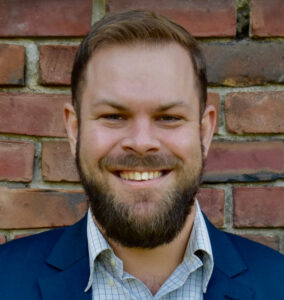MSP strives to connect with alumni to find out more about the work that fulfills their passion for clinical psychology. Life After MSP is our feature column that highlights the career journey of our grads.
Name: Troy Piwowarski, PsyD, LP (Class of 2014)

Job Title: Clinical Training Coordinator, Existential-Humanistic Institute
Describe your work in clinical psychology:
This has been an incredibly eventful year of stepping into new and challenging roles of independence and leadership. Since moving to California last August, I have completed the steps for gaining licensure in Michigan and California, opened a practice, and was elected to be the incoming Clinical Training Director at the Existential-Humanistic Institute (EHI) starting next Fall.
My private practice in Oakland/Berkeley area is still in its early building stages. I am seeing a mix of low fee and full fee adult clients, most of whom are working through complex trauma. In the next six months, I will be joining a group practice called Core Insights, a brand new multicultural community of psychologists in the Bay Area that provides affordable psychotherapy by paneling with insurance companies typically available to lower income populations.
What do you like about your work?
The most rewarding is my work with EHI, which I see as passing the torch of my training at MSP (as well as my training with the magnificent Sid Berkowitz) to fellow therapists. Our certificate program brings together students from around the world with varying degrees of experience as therapists, and provides a concerted space to explore E-H therapy from an experiential standpoint. We challenge students to grapple with their own protective patterns, their own efforts and blocks to being fully present, and their own self and world constructs, so that they can know from a whole-bodied perspective the value of working existentially.
Having been a part of the certificate program since its inception in 2012 with just a few students in a tiny hotel conference room, it is immensely gratifying to see how the program continues to grow and become more refined. I absolutely love engaging with each group of students, and finding new ways to help each individual student make personal connections with the work.
How did MSP prepare you to be successful?
By far, the way that professors believed in me had the most profound impact on my confidence as a psychologist today. Throughout my five years of training at MSP, I found a balance of consistent support and rigorous challenge from faculty members who invested their genuine care in me. That support still resides in me as a therapist; I feel confident that I have something valuable to offer my clients.
The interactive nature of the courses also allowed me to work out what I believe about human beings and the nature of our work as therapists with my classmates, often in edgy ways that challenged my own implicit values and biases. I think this is what spurred me to pursue work as an educator through an experiential lens: I had the chance to “sit in the hot seat” and find out how important it is to not only think about psychology in the abstract, but to actually reside in the formidable questions and uncertainties of existence, just as I ask my clients to do.